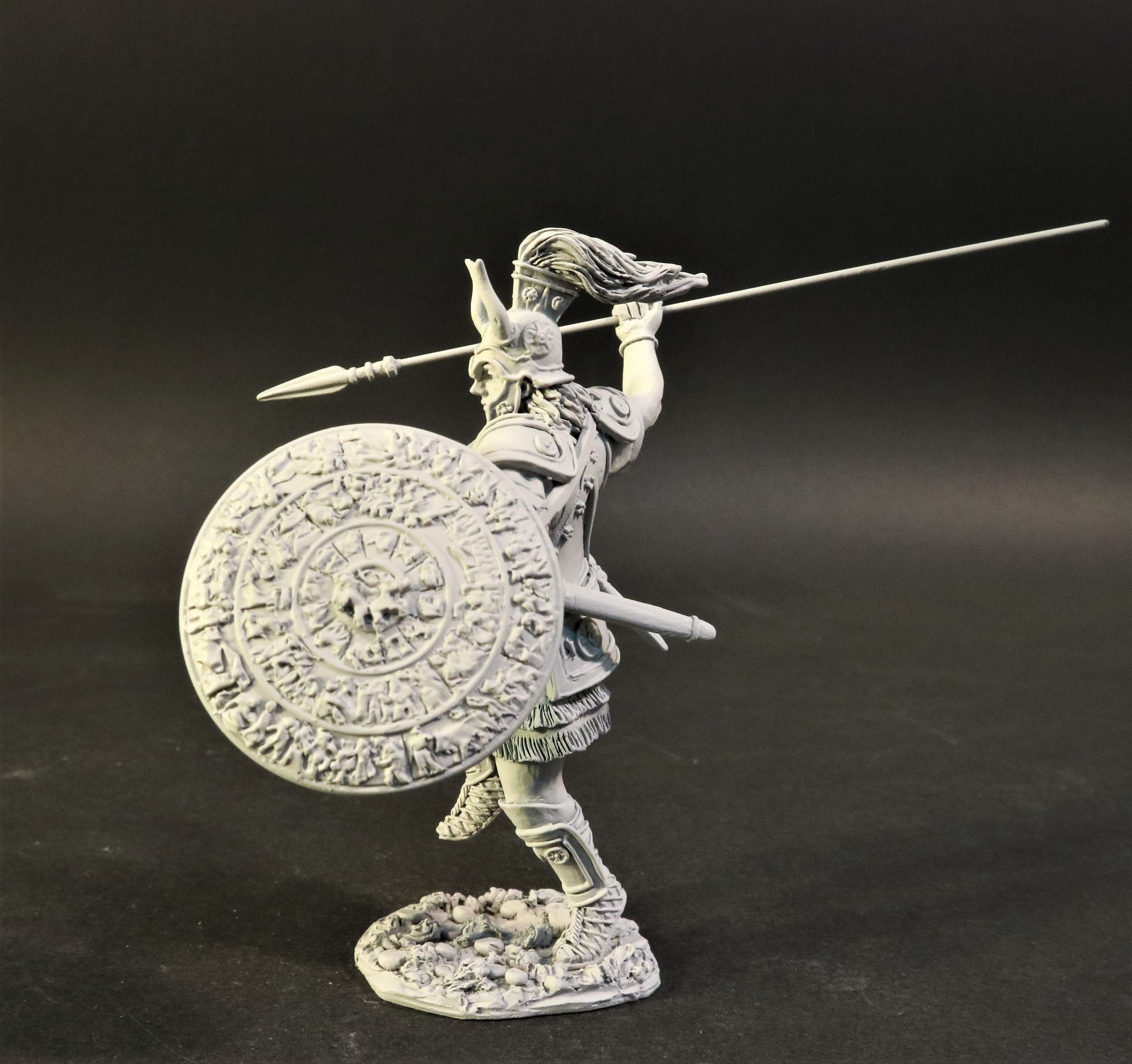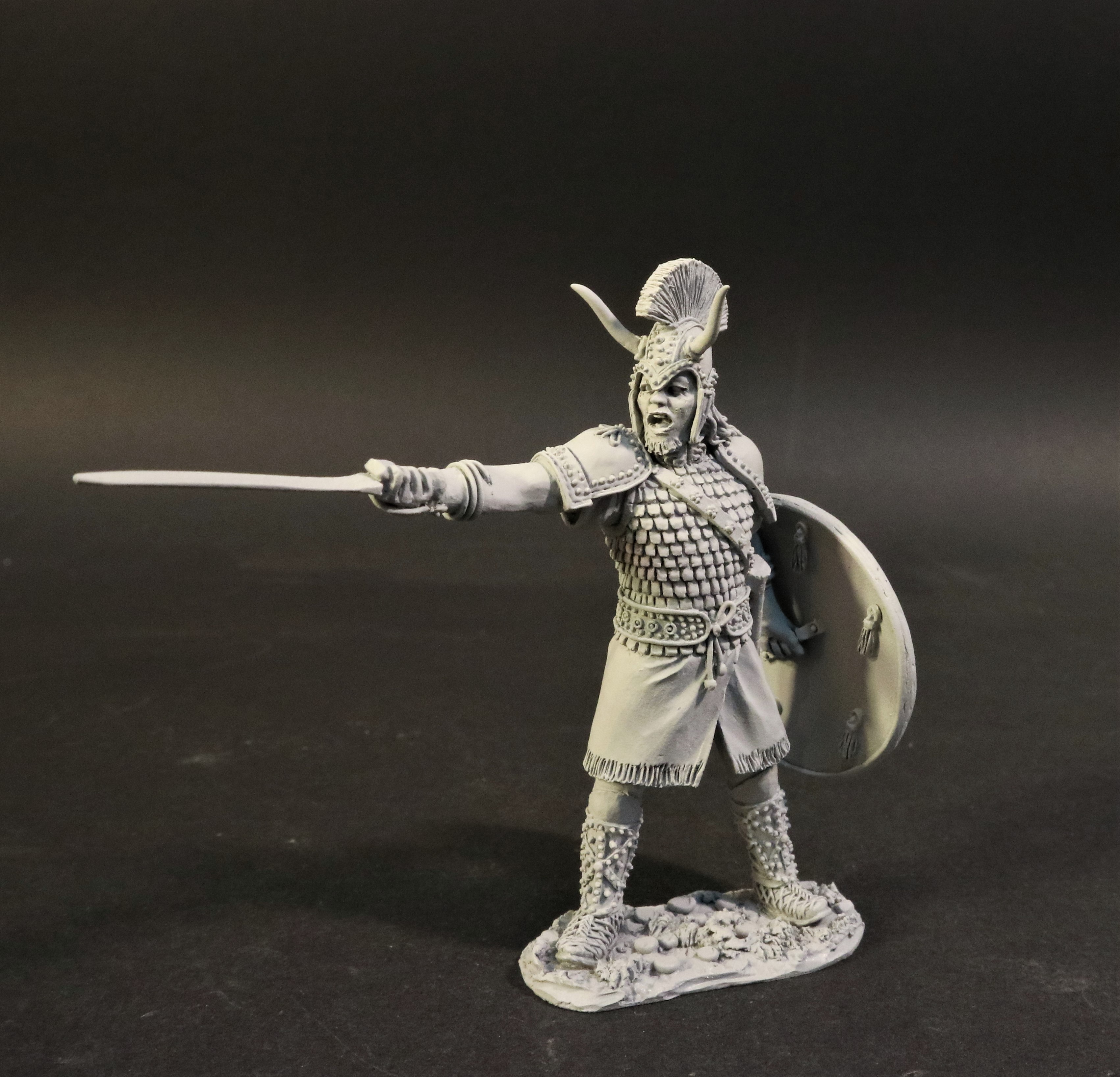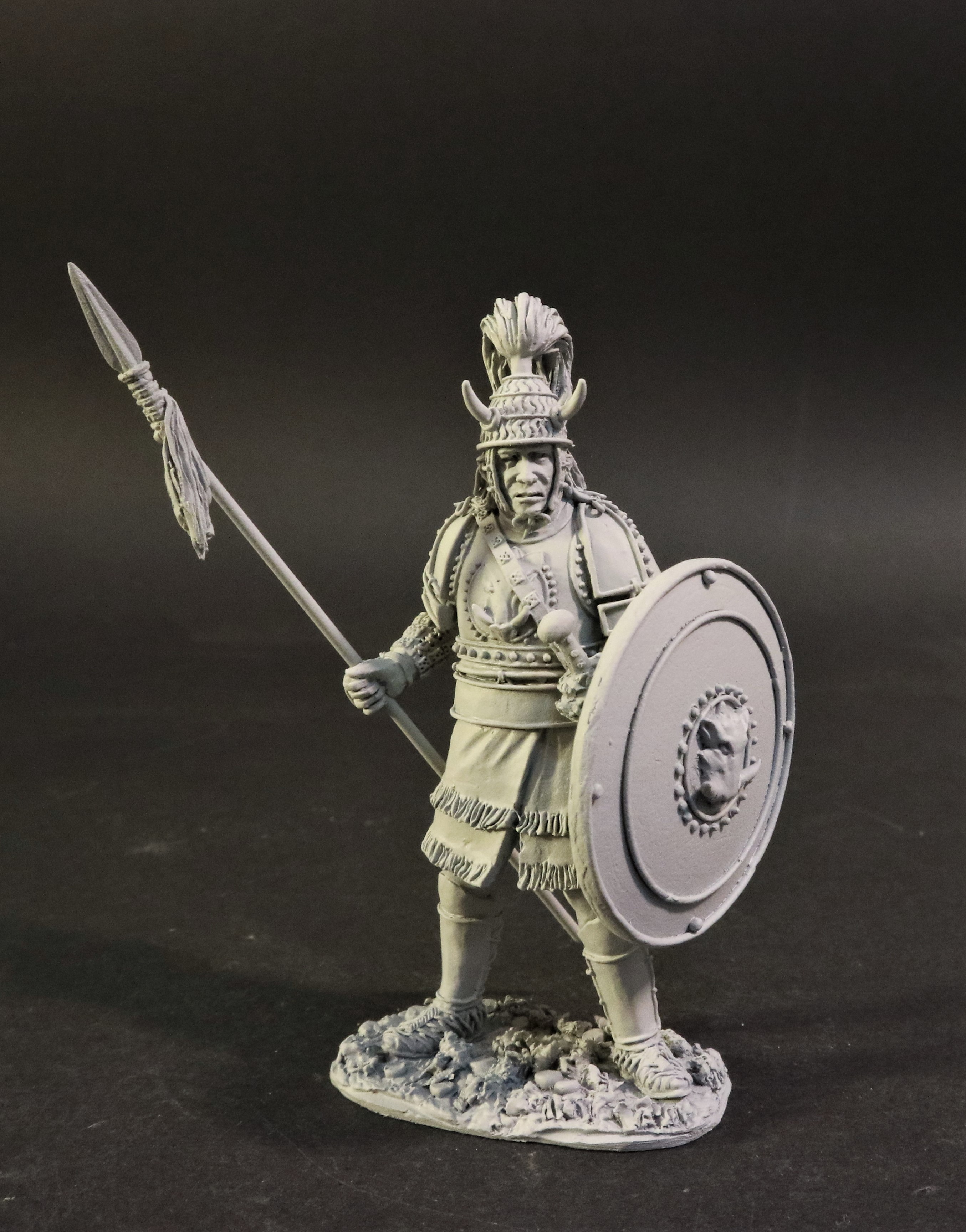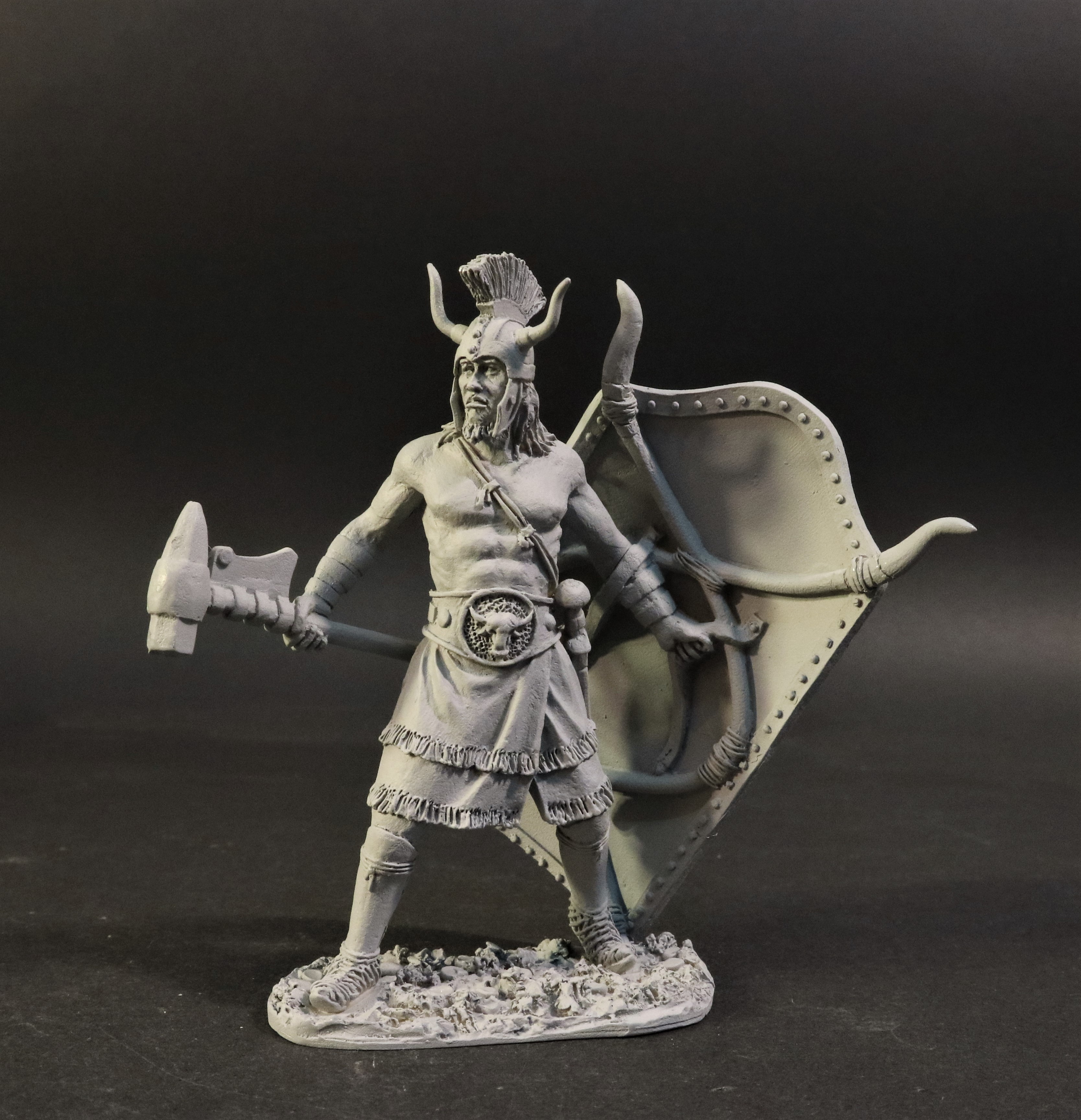23rd Sep 2021
The Trojan War
Traditionally, the Trojan War arose from a sequence of events beginning with a quarrel between the goddesses Hera, Athena and Aphrodite. Eris the goddess of discord, was not invited to the wedding of Peleus and Thetis, and so arrived bearing a gift. A golden apple, inscribed “for the fairest”.
Each of the goddesses claimed to be the “fairest”, and the rightful owner of the apple. They submitted the judgement to a shepherd they encountered tending his flock. Each of the goddesses promised the young man a boon in return for his favour. Power, wisdom, or love. The youth, in fact Paris, a Trojan prince who had been raised in the countryside, chose love, and awarded the apple to Aphrodite.
As his reward, Aphrodite caused Helen, the Queen of Sparta, and the most beautiful of all women, to fall in love with Paris.
The judgement of Paris earned him the ire of both Hera and Athena, and when Helen left her husband, Menelaus, the Spartan king, for Paris of Troy, Menelaus called upon all the kings and princes of Greece to wage war upon Troy.
Menelaus’ brother Agamemnon King of Mycenae, led an expedition of Achaean troops to Troy and besieged the city for ten years because of Paris’ insult. After the death of many heroes, including the Achaeans, Achilles, Ajax and the Trojans Hector and Paris, the city fell to the ruse of the Trojan Horse.
The Achaeans slaughtered the Trojans, except for some of the women and children whom they kept or sold as slaves. They desecrated the temples, thus earning the wrath of the gods.
Few of the Achaeans returned safely to their homes, and many founded colonies in distant shores.
The Romans later traced their origin to Aeneas, Aphrodite’s son and one of the Trojans, who was said to have led the surviving Trojans to modern day Italy.
ACHILLES
In Greek mythology, Achilles was a hero of the Trojan War, the greatest of all the Greek warriors, and is the central character of Homer’s Illiad. He was the son of the Nereid Thetis and Peleus, king of Phthia.

Achilles’ most notable feat during the Trojan War was the slaying of the Trojan prince Hector, outside the gates of Troy.
Although the death of Achilles is not presented in the Iliad, the other sources concur that he was killed near the end of the Trojan War by Paris, who shot him in the heel with an arrow. Later legends state that Achilles was vulnerable in one heel, because when his mother Thetis dipped him in the river Styx as an infant, she held him by one of his heels.

The Homeric epic only covers a few weeks of the decade-long war, and does not narrate Achilles’ death.
It begins with Achilles’ withdrawal from the battle after being dishonoured by Agamemnon, the commander of the Achaean forces.
Angry at some dishonour, Achilles refuses to fight or lead his troops alongside the other Greek forces.
Achilles also prays to Thetis to convince Zeus to help the Trojans gain ground in the war, so that his return will regain his honour.
As the battle turns against the Greeks, thanks to the influence of Zeus, Nestor declares that the Trojans are winning because Agamemnon has angered Achilles, and urges the king to appease the warrior.
Achilles rejects all Agamemnon offers him and simply urges the Greeks to sail home.
The Trojans, led by Hector, subsequently push the Greek army back toward the beaches and assault the Greek ships. With the Greek forces on the verge of absolute destruction, Patroclus leads the Myrmidons into battle, wearing Achilles’ armour, though Achilles remains at his camp. Patroclus succeeds in pushing the Trojans back from the beaches, but is killed by Hector before he can lead a proper assault on the city of Troy.
After receiving the news of the death of Patroclus from Antilochus, the son of Nestor, Achilles grieves over his beloved companion’s death. His mother Thetis comes to comfort the distraught Achilles.
She persuades Hephaestus to make new armour for him, in place of the armour that Patroclus had been wearing, which was taken by Hector.
The new armour includes the Shield Of Achilles, which is described in detail in the poem.
PATROCLUS
According to the Iliad, when the tide of the Trojan War had turned against the Greeks and the Trojans were threatening their ships, Patroclus convinced Achilles to let him lead the Myrmidons into combat. Achilles consented, giving Patroclus the armour Achilles had received from his father, so that Patroclus could convincingly impersonate Achilles.
Patroclus killed many Trojans, including a son of Zeus, Sarpedon.
While fighting, Patroclus’ wits were removed by Apollo, after which he was hit with a spear of Euphorbus. Hector then killed Patroclus by stabbing him in the stomach with his spear.

Hector stripped Patroclus’ of Achilles armour, and a fierce fight developed on the battlefield over the body. Menelaus and Ajax fought valiantly to protect Patroclus’ corpse, and Achilles was finally able to retrieve the body.
MENELAUS
Menelaus was a king of Mycenean Sparta. According to the Iliad, he was a central figure in the Trojan War, leading the Spartan contingent of the Greek army.

According to legend, in return for awarding her a golden apple inscribed “to the fairest”, Aphrodite promised Paris the most beautiful woman in all the world.
After concluding a diplomatic mission to Sparta during the latter part of which Menelaus was absent to attend the funeral of his maternal grandfather Catreus in Crete, Paris ran off with Helen despite his brother Hector’s prohibition.
Invoking the oath of Tyndareus, Menelaus and Agamemnon raised an invasion fleet of a thousand ships and went to Troy to secure Helen’s return.
During the war, Menelaus challenges Paris to a duel for Helen’s return. Menelaus soundly beats Paris, but before he can kill him and claim victory, Aphrodite spirits Paris away inside the walls of Troy.
Later the Trojan Pandarus shoots Menelaus with his bow and arrow, wounding Menelaus in the abdomen.
According to Hyginus, Menelaus killed eight men in the war, and was one of the Greeks hidden inside the Trojan Horse.
During the sack of Troy, Menelaus killed Deiphobus, who had married Helen after the death of paris.
AGAMEMNON
Agamemnon was a king of Mycenae, the son or grandson of King Atreus and Queen Aerope, the brother of Menelaus, the husband of Clytemnestra and the father of Iphignia, Electra, Orestes and Chrysothemis.
When Menelaus’ wife, Helen was taken to Troy by Paris, Agamemnon commanded the united Greek armed forces in the ensuing Trojan War.

DIOMEDES
Diomedes was a Greek hero, and is well known for his participation in the Trojan War.
He was born to Tydeus and Deipyle and later became king of Argos, succedding his maternal grandfather Adrastus.
In the Iliad he is regarded alongside, Ajax the Great and Agamemnon, after Achilles, as one of the best warriors of all the Achaeans.

He and Odysseus were the only Achaean heroes who participated in covert military operations that demanded discipline, bravery, courage, cunning and resourcefulness.
Diomedes received the most direct divine help and protection. He was the favourite warrior of Athena, and was the only hero that attacked and even wounded an Olympian god.
The god Hephaestus made Diomedes’ cuirass for him, and was the only Achaean warrior apart from Achilles who carried such an arsenal of gear made by Hera’s son.
His shield bore the mark of a boar, and he carried a large spear as well as his father’s sword which bore designs of a lion and a boar.
AJAX THE GREAT
Ajax was the son of King Telamon and Periboea, and the half brother of Teucer.
He is portrayed as a towering figure, and a warrior of great courage.

In the Iliad, Ajax is notable for his abundant strength and courage, and was chosen by lot to meet Hector in a duel which lasts most of a whole day. The encounter ended in a draw, with Ajax presenting Hector with a purple sash and Hector giving Ajax his silver sword.
The second fight between the two heros occurs when the Trojans break into the Mycenean camp, and the fight takes place amongst the Greek ships.
Ajax is responsible for the death of many Trojan lords, including Phorcys. According to Hyginus, in total, Ajax killed 28 people at Troy.
There will to be chariots

The first of the Trojan War figures, should be available in December.
Best wishes
john jenkins
